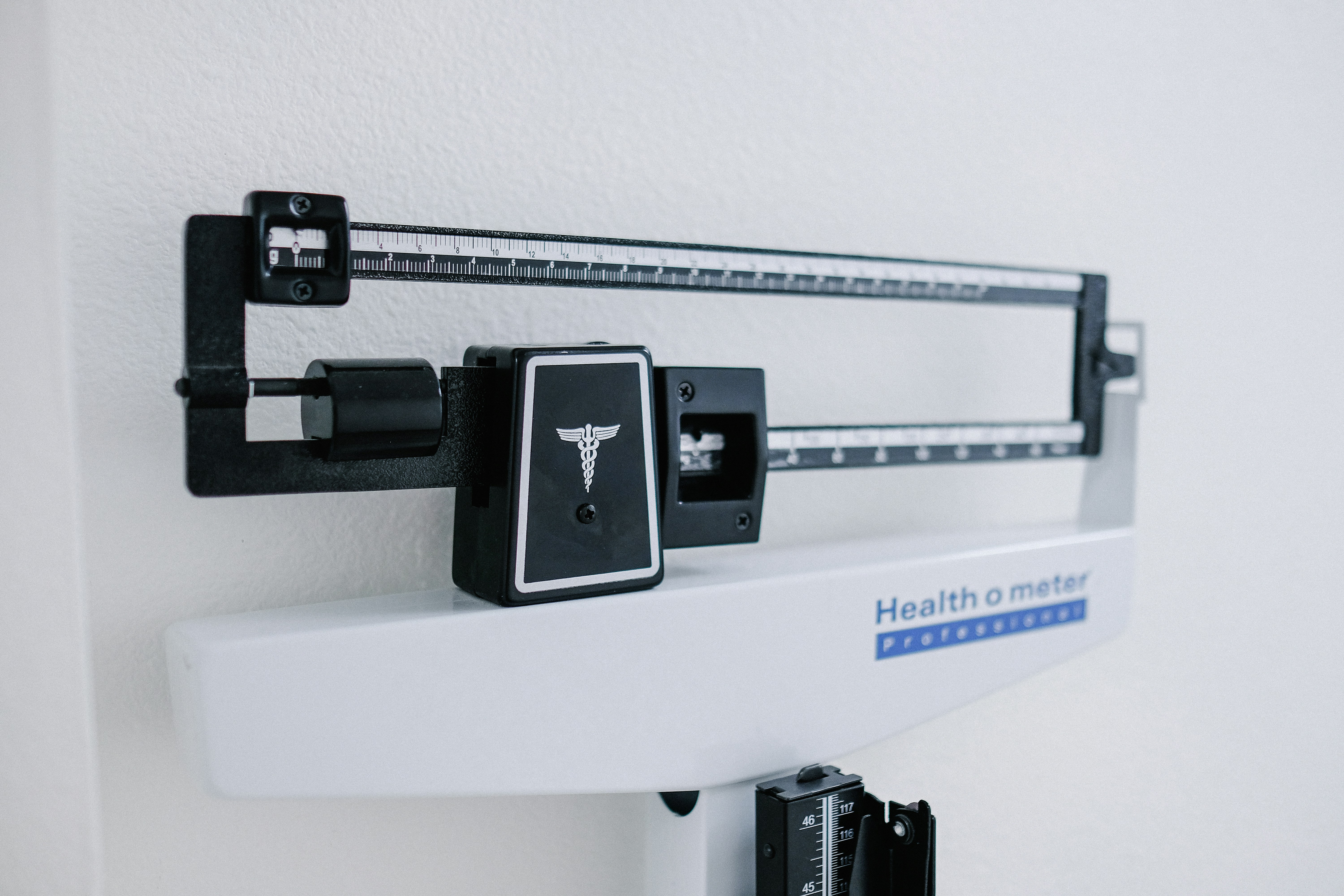The Hidden Dangers of Losing Weight Too Quickly
Have you ever embarked on a weight loss journey, only to find yourself frustrated by endless cycles of losing and regaining the same few pounds?
Understanding Rapid Weight Loss
In our fast-paced world, it’s easy to see why rapid weight loss might seem appealing. After all, who doesn’t want quick results? However, it’s essential to understand the serious implications that come with losing weight too quickly. Rapid weight loss can lead to a variety of health issues, and often doesn’t result in long-term success.
The Allure of Quick Fixes
Everywhere you look, from social media to reality television, you’re bombarded with success stories about people who shed pounds at lightning speed. While it’s natural to be drawn in by these tales of transformation, remember that what you don’t see is the potential fallout from such drastic measures.
Why Does Rapid Weight Loss Occur?
Many people turn to extreme diets or intense workout regimens in hopes of seeing immediate results. Hormonal fluctuations, high stress levels, or drastic changes in food intake can lead to a rapid initial weight loss but often mask the underlying issues. When you lose weight too quickly, you’re usually losing water weight rather than fat—which is not a sustainable or healthy approach.
The Risks Associated with Rapid Weight Loss
While you might be tempted to join the ranks of those who have shed weight quickly, consider the risks involved.
Nutritional Deficiencies
Adopting an overly restrictive diet can result in significant nutritional deficiencies. Your body requires a balanced intake of vitamins and minerals to function optimally. Without them, you might experience fatigue, dizziness, or even muscle loss. This not only impairs your physical health but also affects your mood and mental well-being.
Metabolic Slowdown
One of the body’s defense mechanisms against famine is to slow down the metabolism. When you drastically decrease your caloric intake, your body can go into starvation mode, which means it conserves energy. A slower metabolism makes it harder to lose weight over time and may contribute to weight gain once you return to normal eating habits.
Gallstones and Other Complications
Rapid weight loss can lead to the formation of gallstones due to the way your body processes fat. In fact, individuals who lose more than three pounds per week are more at risk. This is not a minor concern, as gallstones can lead to surgery and long-term health consequences.
Psychological Impact
The psychological effects of quick weight loss can be just as damaging as the physical aspects. Unrealistic expectations can lead to feelings of failure and disappointment. For some, the pressure to maintain a drastic weight loss can result in unhealthy behaviors, such as disordered eating.
The Benefits of a Gradual Approach
Instead of chasing quick fixes, it’s wise to consider the long-term benefits of gradual weight loss.
Sustainable Lifestyle Changes
When you choose to lose weight slowly, you’re more likely to adopt sustainable habits. This might include learning to cook healthier meals or finding enjoyable forms of exercise that you can stick with over the years. These habits not only help with weight loss but also improve your overall health and well-being.
Adjusting to New Habits
Losing weight at a slower pace allows your body and mind to adapt to new routines and dietary changes comfortably. As you shed pounds gradually, your body will have time to adjust to its new weight and will learn how to maintain it. This is the key to long-lasting success.
Enhanced Psychological Well-Being
Losing weight gradually can also enhance your self-esteem and bolster your confidence. You’ll be more likely to celebrate small victories along the way, rather than focusing solely on the target number.
Setting Realistic Goals
One important aspect of any weight loss journey is setting realistic goals.
Knowing Where to Start
Before you embark on any weight loss plan, it’s crucial to have your physician evaluate your personal health situation. Their expertise will help you determine a safe and effective target weight loss rate, tailored specifically for you.
Short-term vs. Long-term Goals
- Short-term Goals: These should be achievable milestones, like losing one to two pounds per week.
- Long-term Goals: While your ultimate target weight might be far ahead, think of it as a series of smaller journeys rather than a single destination.
Accountability and Support
Whether it’s a friend, family member, or healthcare provider, having someone to share your journey with can provide motivation and accountability. They can help keep you on track and celebrate your milestones, big and small.
The Role of Nutrition
A well-balanced diet plays a crucial role in any weight loss plan.
The Importance of a Balanced Diet
Eating a variety of foods ensures you receive all of the necessary nutrients your body needs. Focus on whole foods such as fruits, vegetables, whole grains, lean proteins, and healthy fats. This variety will satisfy your hunger while ensuring that your body gets everything it needs to thrive.
Mindful Eating
Incorporating mindfulness into your eating habits can lead to more conscious choices. This means being aware of when you eat, what you consume, and how it makes you feel. Mindful eating also helps you recognize hunger and satiety cues, leading to healthier portion sizes and ultimately promoting weight loss.
Smart Snacking
Snacks between meals can be beneficial, provided they are nutritious. By keeping healthy options like nuts, yogurt, or sliced vegetables handy, you will find it easier to resist the temptation of unhealthy snacks.
The Importance of Physical Activity
Exercise is a vital component of any successful weight loss plan, especially when you’re aiming for gradual results.
Finding Enjoyable Activities
Make a list of physical activities that you genuinely enjoy. Whether it’s dancing, walking, swimming, or yoga, choose something that feels less like a chore and more like a delightful part of your day. The more you enjoy your workout, the more likely you are to stick with it over time.
Mixing It Up
Incorporate a variety of workouts into your routine to avoid boredom and keep your body challenged. This might include strength training, aerobic exercises, and flexibility routines. Not only does this improve your overall fitness, but it can also help prevent injuries by allowing different muscle groups to recover.
Listening to Your Body
An important aspect of maintaining a healthy weight loss journey is tuning in to what your body is telling you.
Recognizing Hunger and Fullness
Pay close attention to your body’s hunger signals. Are you really hungry, or are you just bored? Are you eating because you’re stressed or anxious? Developing a healthy relationship with food is key to sustaining your weight loss.
Rest and Recovery
Just as exercise is crucial, so is rest. Make sure to schedule in time for recovery, whether that’s a restful night’s sleep or a day off from intense workouts. This allows your body to heal and adapt to your new regimen.
Setting a Weighing Schedule
Monthly weigh-ins can help track your progress effectively. This also prevents you from obsessing over daily fluctuations that can occur due to water retention or other factors.
The Importance of Consistency
Establishing a routine can help reinforce positive habits. For instance, weighing yourself every Tuesday morning might be an excellent way to maintain consistency.
The Reality of Weight Fluctuations
Weight loss is rarely linear. It’s crucial to accept that fluctuations are part of the process.
Understanding Plateaus
Plateaus are common in any weight loss journey. This doesn’t mean you’re not making progress—your body is simply adjusting to its new weight. Utilize these times to reassess your strategies and tweak your approach if necessary.
Long-Term Focus
Remember that your goal is to create lasting change. Rather than fixating on short-term numbers, concentrate on your overall health, strength, and lifestyle improvements.
Dealing with Setbacks
Life is unpredictable, and setbacks will happen. It’s how you respond to these challenges that determines your long-term success.
Embracing Imperfections
Instead of succumbing to guilt or frustration after a setback, treat yourself with kindness. Recognize that temporary stumbles are a natural part of any journey, and instead of giving up, reassess and get back on track.
Seeking Support
During tough times, don’t hesitate to reach out to your support network. Sharing your struggles can lighten the load and provide you with encouragement to keep going.
Long-Term Maintenance Strategies
Once you have reached your weight loss goal, consider how to maintain your results.
Establishing a New Normal
Transitioning from weight loss to weight maintenance means sustaining all the healthy habits you have developed. Think about what has worked best for you and keep those routines in place while allowing for occasional indulgences.
Continuous Learning
Stay informed about nutrition and fitness even after achieving your goal weight. The world of health and wellness is continually evolving, and being aware of new findings can keep you inspired.
Focus on Overall Health
Shift your mindset to one that prioritizes overall well-being rather than just numbers on a scale. Celebrate achievements outside of weight loss, like increased energy levels or improved endurance.
Conclusion
As tempting as it is to chase rapid weight loss solutions, it’s often a rocky road filled with unexpected dangers. By embracing a slower, more deliberate approach, you not only promote healthier habits but establish a lifestyle that can lead to sustained results and overall well-being.
Your weight loss journey is not merely about the destination—it’s about all the choices, lessons, and experiences along the way. True success comes from embracing a gradual path, allowing yourself time to adapt, learn, and grow healthier in body and mind.












